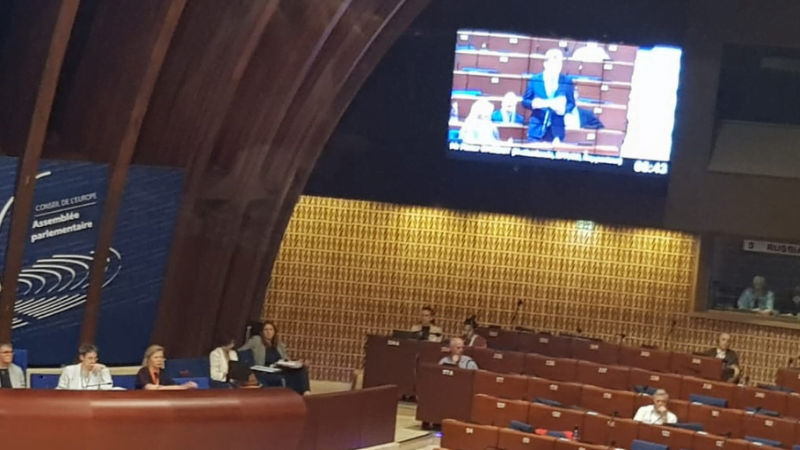The Chair of the Parliamentary Assembly of the Council of Europe’s Human Rights Committee, Boriss Cilevics has submitted key documents from Rapporteur Pieter Omtzigt’s report on the assassination of Daphne Caruana Galizia to the Maltese public inquiry.
The first document submitted is the 8 June 2019 report on ‘Daphne Caruana Galizia’s assassination and the rule of law in Malta and beyond: ensuring the whole truth emerges’.
The second is a resolution adopted by the Assembly on 26 June of the same year.
The follow-up report compiled in November 2020 has also been included in the documents handed over to the public inquiry board.
The chair of the @PACE_LegalHR Committee has submitted key documents from @PieterOmtzigt's report on the death of #DaphneCaruanaGalizia to #Malta's public inquiry
Main report:https://t.co/CsiW98fGbL
Resolution:https://t.co/HacH0z7Nqo
Follow-up report:https://t.co/9GSpRJQBJ7 pic.twitter.com/xJQOzeL9lm
— PACE (@PACE_News) February 3, 2021
Omtzigt, whose mandate as Rapporteur came to an end in December, oversaw the investigation and compilation of both reports, as well as the presentation of the resolution to the parliamentary assembly.
The initial report detailed no less than 10 concerns regarding the investigation into the murder. It stated that the rule of law and systems of checks and balances in the country were subject to “systemic failings”.
In terms of the Maltese justice system, law enforcement bodies, and state institutions, the report found that they were not compliant with European standards on the rule of law.
Several prominent scandals involving senior government officials were also highlighted such as Vitals Global Healthcare, Golden Passports, Pilatus Bank, and the “sinister” Electrogas deal. It noted that many of these had not even been investigated, or if they had, they were still ongoing many years later.
In cases where investigations are concluded, the findings are closely guarded and often never see the light of day.
In relation to Caruana Galizia’s murder, the report raised a number of concerns, in particular, a “prevailing culture of impunity”. It was thanks to pressure from the Council of Europe that the Maltese government reluctantly opened a public inquiry into her assassination by a car bomb in October 2017.
The follow-up report was compiled and published at the end of last year to detail any progress made in implementing the resolution, and any concerns that remain outstanding.
The report noted that reforms were “procedurally flawed” and remain “substantively incomplete in important respects”. One of these issues was the fact that the government continued to exclude civil society from any consultation or involvement in reforms, something that did not impress Omtzigt or the Venice Commission.
Overall, he concluded that the implementation of Resolution 2293 had been unsatisfactory. Reforms hadn’t been fully implemented, key points had been ignored, and there had been no concrete results for ending impunity for high-level corruption.
“Despite new laws, new officials, and even a few arrests, no-one has been prosecuted – it’s as simple as that,” he wrote.
And in terms of justice for the assassination of Caruana Galizia, implementation remained “fundamentally unsatisfactory” and full of “great confusion”.
Omtzigt noted there were doubts over the integrity and reliability of procedures, and he feared it would lead to recommendations, not verdicts.














The knot of all this is a legitimized government elected in a modern way by including 3rd parties to keep balance from abuse and monopoly.